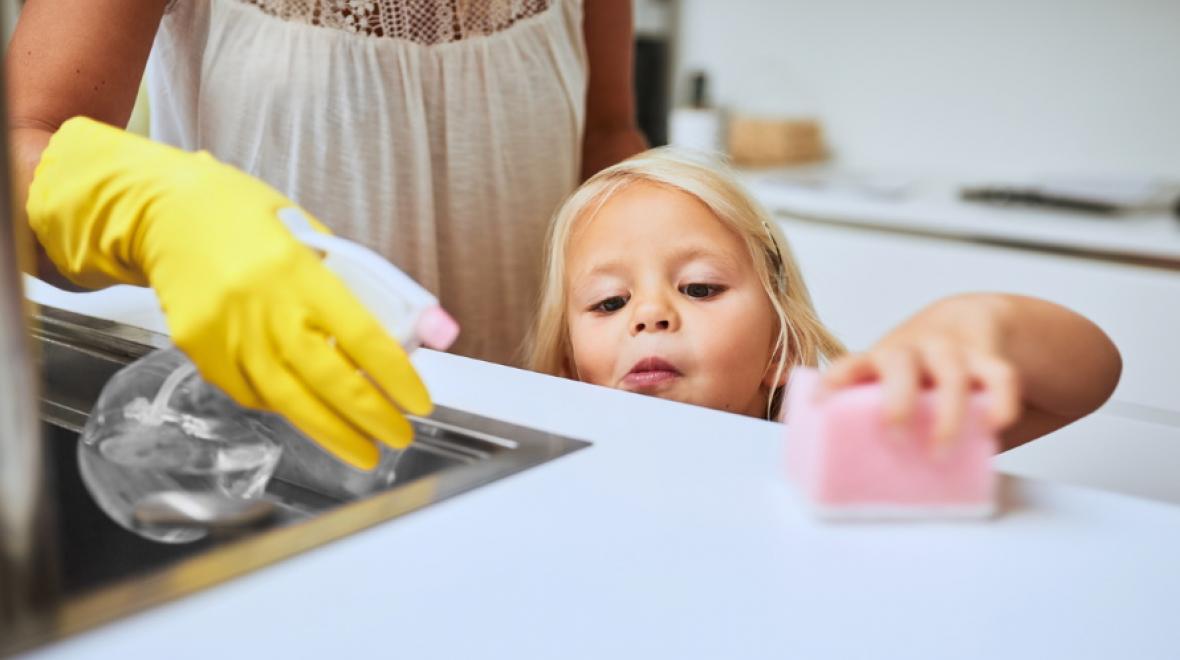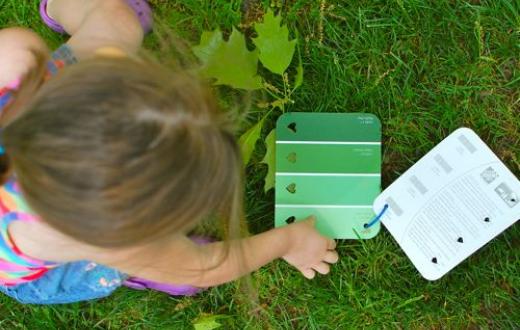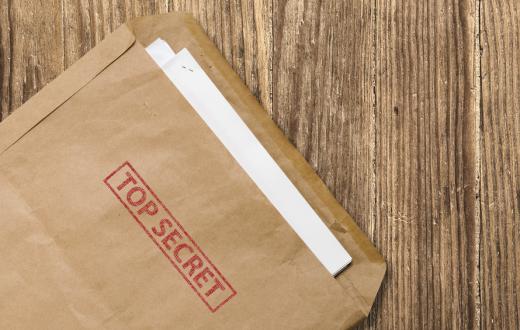
Household cleaning products can be expensive, and many aren’t friendly to the environment. Commercial cleansers, especially those used in the kitchen or bathroom, can also produce irritating fumes. So, if you would like to conquer your grimy kitchen and bathroom — without the need for a hazmat suit or a gas mask — read on!
Most household cleaning and disinfecting can be accomplished using two main ingredients: baking soda and white vinegar. Add liquid dish soap and you have a full arsenal. Baking soda makes a great scouring powder, plus it neutralizes odors and kills mold and mildew. Acetic acid, the active ingredient in vinegar, acts as a disinfectant and also inhibits mold. Liquid dish soap helps to cut through grease and soap scum. Add a few drops of essential oils such as lavender, geranium or lemon to make your homemade cleaning spray a little more fragrant.
Arm yourself with baking soda, vinegar and liquid dish soap, grab some rags and a scrub brush, and declare war on the germs, soap scum, mold and mildew in your bathroom and kitchen.
In the kitchen
Surfaces: For general surface cleaning, fill a spray bottle with a mixture of half white vinegar and half water. Spray on and wipe clean. Always test your cleaning solution on a small area of any surface before use, as you would with any cleaning product.
Note: Do not use vinegar on marble, as the acid can etch it; and use it with caution on finished wood surfaces and tile.
Sink: For the sink, baking soda makes a great scouring powder. Simply sprinkle it onto the damp sink basin, let it sit for a few minutes, then scrub with a wet rag or sponge. To clean and deodorize the drain, try this simple solution: Pour one cup baking soda and one cup white vinegar into the drain. Let this mixture sit for 15 minutes. The bubbling and hissing sound you will hear is the acidic vinegar reacting with the baking soda, which is a base. The two products together can help loosen grease and cut through clogs. Follow this step by pouring a kettle full of boiling water down the drain. Then finish up by shining the faucet with a spritz of your vinegar and water solution.
Microwave: To loosen cooked-on food residue in the microwave, put one-half cup of white vinegar and one-half cup of water in a microwave-safe bowl. Place the bowl in the microwave and heat the solution until it boils. Once everything has cooled, remove the bowl and wipe down the interior with a cleaning rag dipped in the contents of the bowl.
Oven: To clean the oven, spray water on any dirty surfaces, and then sprinkle with baking soda liberally. Spray in some water again to wet the baking soda. Let it sit overnight, and then scrub the oven with a wet rag.
Refrigerator: Wiping down shelves and walls with a solution of two tablespoons baking soda mixed with one-quart warm water will both clean and deodorize your fridge.
Floors: Mop your no-wax floors with one-half to one cup white vinegar per gallon of water.
Windows: Use the same vinegar-water solution you made up for surface cleaning. If you notice smearing, add a few drops of liquid dish detergent to cut through residue that might have been left behind by commercial cleaners. Using newspaper or coffee filters to wipe windows can reduce streaking.
In the bathroom
Sink: For the bathroom sink, use baking soda for scrubbing and your vinegar-water solution for shining.
Bathtub/shower: For the bathtub or shower, try this great solution for zapping soap scum. Fill a spray bottle with half dishwashing liquid and half white vinegar. Be sure to choose a dish liquid with a degreasing action. Shake the bottle gently, and then spray the contents liberally on surfaces to be cleaned. Let it sit for 10–15 minutes, then scrub and rinse well.
Toilet: Pour one cup of white vinegar into the toilet bowl. Wait a few minutes, scrub with the toilet brush, and then flush. Wipe down the rest of the toilet with your vinegar-water solution.
Shower heads: To loosen deposits on shower heads, fill a small plastic bag with one-half cup baking soda and one-half cup vinegar. Use a rubber band to attach the solution-filled bag to the shower head, so that the nozzle is immersed. Wait about 15–30 minutes and then remove the bag. Scrub the shower head with an old toothbrush as needed to dislodge any stubborn deposits, and then run water through the shower head.
Grout: Make a thick paste by mixing baking soda and water. Apply it to your grout, let it sit for 15 minutes, and then scrub clean with an old toothbrush.
Shower door tracks: Fill any dirty tracks with undiluted white vinegar and let sit for about half an hour. Then scrub with an old toothbrush and rinse clean.
Shower curtain: To remove mildew off of the shower curtain liner, wash the liner in your washing machine on a gentle, cold-water cycle using your regular detergent plus one cup of baking soda. Throw a bath towel in with the load to keep the plastic from sticking together. After washing, allow the curtain to air-dry.
By using these simple and nontoxic cleaning solutions, you will save money and the environment — and possibly your health!
Editor's note: This article has been updated for 2023.




8229.jpg)






